







The Master's in Medical Laboratory Technology program provides focused instruction in critical areas of clinical laboratory science: Hematology, Blood Transfusion, Microbiology, and Immunology. Students develop advanced skills in disease diagnosis, treatment, and prevention through in-depth exploration of these fields. Hands-on laboratory work and rigorous coursework enable students to proficiently analyze blood samples, comprehend immunological responses, and identify microbial pathogens. Equipped with this specialized knowledge, graduates are prepared for diverse roles in healthcare, including clinical laboratories, research institutions, and blood banks. Their robust expertise in Hematology, Blood Transfusion, Microbiology, and Immunology positions them for success in advancing patient care and driving biomedical research forward.
Year wise Course Details
Courses for this semester
The course offers a comprehensive overview of clinical sample management, including collection, preservation, and transport, along with in-depth study of urine, stool, and body fluids examination, gastric juice analysis, and the principles of pregnancy testing for accurate diagnostic applications.
The course provides foundational and advanced knowledge in histopathology and cytopathology, covering specimen fixation, tissue processing, staining techniques, immunohistochemistry, and lab management for accurate diagnostic services and cancer biology understanding in clinical and research settings.
The course provides an extensive foundation in microbiology, covering its historical background, microscopy, culture methods, bacterial genetics, parasitology, virology, and fundamental immunology, including the roles of immunoglobulins and antigens.
This course provides a comprehensive understanding of biomolecules—carbohydrates, proteins, lipids, nucleic acids, and enzymes—covering their structures, functions, roles in health and disease, and essential clinical techniques for biochemical analysis.
The is to develop the social and soft skills and to promote a holistic development of the learners.
Courses for this semester
The course covers Total Quality Management, quality assurance, and control practices, emphasizing precision, reliability, and continual improvement in laboratory processes.
The course explores DNA structure, types, and regulatory mechanisms, covering transcription, translation, and genetic codes. Students will analyze mutations, DNA repair, and mutagenesis while gaining proficiency in recombinant DNA technology and cloning strategies. The course also emphasizes the application of genetic knowledge in medicine, including prenatal diagnosis and healthcare innovations.
The course covers Immuno-Hematology basics, blood groups, antigen-antibody reactions, transfusion components, anticoagulants, and key blood group systems like ABO, Rh, MNS, and Bombay.
This course emphasizes a systematic, rational study of human existence in relation to the world, free from dogma or prescribed values. It focuses on self-investigation and exploration, encouraging students to verify truths through their Natural Acceptance and Experiential Validation rather than accepting them as given. Learning begins with interactive dialogue between teacher and students, evolving into personal reflection for continuous self-evolution. By fostering critical evaluation of preconditioned beliefs, the course nurtures independent thinking, deeper understanding, and ongoing personal growth.
Co-curricular Activities are enabled to supplement and complement the curricular or main syllabi activities. These are the part of educational institutions to develop the students’ personality as well as to strengthen the classroom learning. Co-curricular Activities have wide horizon to cater to the cultural, social, aesthetic development of the child.
This course provides hands-on training in medical laboratory techniques, focusing on essential skills in clinical diagnostics. Students will operate laboratory equipment, adhere to Good Laboratory Practices (GLP), and master techniques such as pipetting and sample preparation. Key topics include laboratory safety, data analysis, advanced diagnostic instrumentation, and applications in quality control and patient care, with an emphasis on accuracy, experimental design, and troubleshooting.
The course focuses on developing advanced teaching skills and effective pedagogical strategies for diverse educational settings. Students will learn to design inclusive, innovative lesson plans, critically analyze teaching practices, and implement classroom management and assessment techniques. The course also emphasizes the application of theoretical knowledge to address practical challenges in education, ensuring continuous improvement in instructional effectiveness.
The course emphasizes developing an understanding in qualitative analysis, photometric techniques, isotope applications, laboratory management, and advanced automation, with a particular focus on Point-of-Care Testing (POCT) to ensure precise diagnostics.
The course explores the development and disorders of blood cells, anemia, plasma cell disorders, and platelet abnormalities, emphasizing diagnostic techniques and laboratory investigations.
The course provides an understanding of communicable and non-communicable diseases, the complement system, antimicrobial resistance, and its control measures. It also covers antigen-antibody reactions and offers foundational knowledge of mycology, emphasizing key concepts in disease mechanisms and microbiological processes.
Courses for this semester
Understand and apply ethical theories and address key research ethics issues like responsibility, ethical vetting, and misconduct. Implement sampling, data collection, analysis, and reporting procedures ethically and accurately. Present ethical arguments and results effectively and outline steps for workplace accident documentation.
1. Understanding the principles and applications of total quality management, emphasizing its relevance in laboratory settings. 2. To learn the importance of precision and adherence to established standards while executing laboratory processes. 3. Implement and manage quality assurance practices to ensure consistency and excellence in laboratory operations.
. The students will understand and study about bacteria and virology 2. The student will be taught in detail about parasitological and mycology 3. The students will understand the depth knowledge on Quality control in microbiology
Understand Theoretical Foundations: Explore key theories and research in positive psychology, happiness studies, and life satisfaction to grasp the scientific and philosophical underpinnings of a fulfilling life. The Learners will understand a meaningful life of happiness and contentment .
Basic concepts of The Strategies and Skills Learning and Development System (SSLD). Relevance for every day relationships and provide advanced concepts for participants who work in fields of social work and health care . Basic practice principles and methods of SSLD, illustrated by relationship management case studies.
1. Recall the different blood group systems and genetics and indicate the different types of blood product and their uses, Identify and categorize different types of anticoagulants used to store blood. Build a strong knowledge on the medicolegal aspects of blood transfusion centers. Understand the importance of apheresis and explore the future trends in blood transfusion practices.
The students will be taught to understand the Origin, development, function, fate of blood cells, disordersof Red blood cells and white Blood cells. The students will have knowledge on Plasma cell myeloma and laboratory investigations. The students will understand to Elaborate on the Pathogenesis, Clinical feature on Vascular disorders, Plateletdisorders, coagulation
1.Students will be taught about the Structure and function of the immune system. 2.Summarizing about the Transplant Immunity & Tumor immunity. 3.The student will have comprehensive knowledge on Parasitology, Collection and processing in mycology, Identification and isolation of possible fungal pathogens from clinical samples.
1.Learn to design effective surveys, create reliable and valid survey instruments, and select appropriate sampling methods. To improve the quality of the laboratory reports. 2.Acquire skills to process and analyze survey data using descriptive and inferential statistics, and interpret survey results accurately. 3.Explore qualitative methods such as interviewing and coding, and integrate these with quantitative data for comprehensive analysis.
Courses for this semester
This course develops statistical analysis skills, enhances data interpretation, fosters critical evaluations, and teaches professional techniques for articulating feature scope and presenting theses effectively.
This comprehensive course is designed for educators, trainers, and anyone involved in facilitating learning experiences. The Efficient Teaching Skills course focuses on refining pedagogical approaches to maximize student engagement, comprehension, and retention. Participants will gain practical insights, strategies, and techniques to create a dynamic and effective learning environment.
The course connects theoretical knowledge with practical skills in diagnostic laboratories, covering techniques, workflows, and quality control measures to ensure accurate and reliable test results.
The course covers quality control types, error sources in laboratories, control charts, quality circles, and Total Quality Management (TQM) for continuous improvement and excellence.

CST- Common scholarship test is a national and international level online MCQ based examination funded for intellectual empowerment by Assam down town University.
CST- Maximum enrolment each year is 120 seats and any 10+2 students can apply. Adtu is northeast India’s first placement driven university to provide 100% scholarship benefits worth 10 cr.
CST aims to inspire brilliant and competent students to pursue further education. Accredited with a prestigious grade by NAAC, UGC and AICTE.
Explore more scholarships that can help you reach out your goal with financial aid.
This scholarship is valid on the basis of the board/university examination
| 95% & above | 100% Scholarship on all semester |
| 90%-94.9% | 50% Scholarship on all semester |
| 80%-89.9% | 25% Scholarship on all semester |
This scholarship is valid on the basis of the board/university exam
| National & International Level | 100% Scholarship on all semester |
| State Level | 50% Scholarship on all semester |
| District Level | 25% Scholarship on all semester |
This scholarship is valid on the basis of the board/university exam
| National & International Level | 100% Scholarship on all semester |
| State Level | 50% Scholarship on all semester |
| District Level & NCC Certificate Holder | 25% Scholarship on all semester |
Discover a multitude of world-class amenities and cutting-edge resources at Assam down town University, enhancing your academic journey to new heights.
The Start-Up & Incubation Centre at Assam down town University provides a supportive environment for young entrepreneurs to develop and grow their business ideas. The center provides mentorship, funding, and networking opportunities to help innovative ideas become successful businesses.
SFURTI scheme to support rural entrepreneurs and innovators, an initiative by the Ministry of MSME
TIDE 2.0 scheme for ICT-based startups which provides a grant of Rs. 4L and Rs. 7L under EiR and Grant categories respectively, an initiative by the Ministry of MeitY.
dtVL Ideation, an incubation program for early-stage entrepreneurs with a market-ready solution/product, offering interest-free loans up to Rs. 2 lakhs.
Sprout UP, an incubation program for students, faculties, and researchers with innovative business ideas, prototypes, or technology solutions.








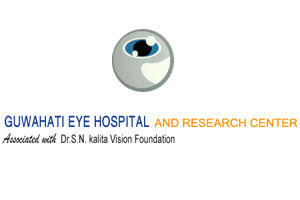

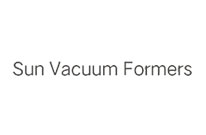















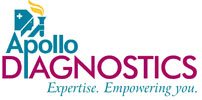





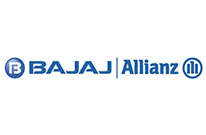







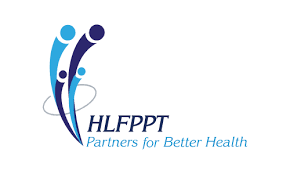

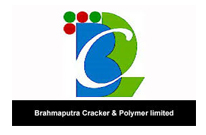
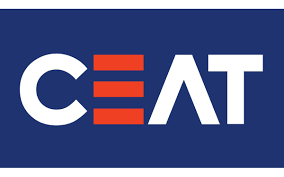

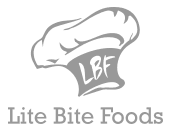

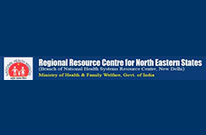


"I am a BBA student of 3rd semester. I hail from Bhutan. I vow that I am having a great experience i...
"AdtU is amazing. I am a BBA student of 2019-22 batch and I am just grateful for the amount of oppor...
Let us be grateful to the people and place who makes us happy. They are the charming gardeners whom ...
Currently I am pursuing MBA in Assam Down Town University. MBA is the professional course through wh...
AdtU is a university that focuses on giving knowledge, education and simultaneously making the stude...
The Assam downtown University has been a great learning experience. The university has provided me w...
My experience with AdtU has been splendid one indeed. Little needs to said about its scenic infrastr...
As a student I am very glad that I have got an opportunity to study here in Assam downtown universi...
My name is Sakhyajit Roy. I?m from Tripura. I joined the university on Auguest, 2017 as a student of...
I share immense pleasure to share my post graduate program experience in Assam down town University....
AdtU is a platform where I got golden opportunities to feed my zeal for knowledge through the dynami...
I am fortunate to get an opportunity to study here in Assam Downtown University. The best thing abou...
Our university is one of the best place for developing ourselves in the field of research and acedem...
ADTU is a university that is very good interms of infrastructure, academics and placements. Our tea...
It is one of best private colleges in North East India, it also provides a good environment for ed...
ADTU is a good University which provides the students with best quality lectures and ensures comfort...
The environment of Assam downtown university is very pleasant.The department of BMLT is very good a...
The university has all the necessary facilities and amenities for students . The classrooms and the ...
Assam downtown University is well recognised all over india. In the ongoing pandemic situation it ha...








